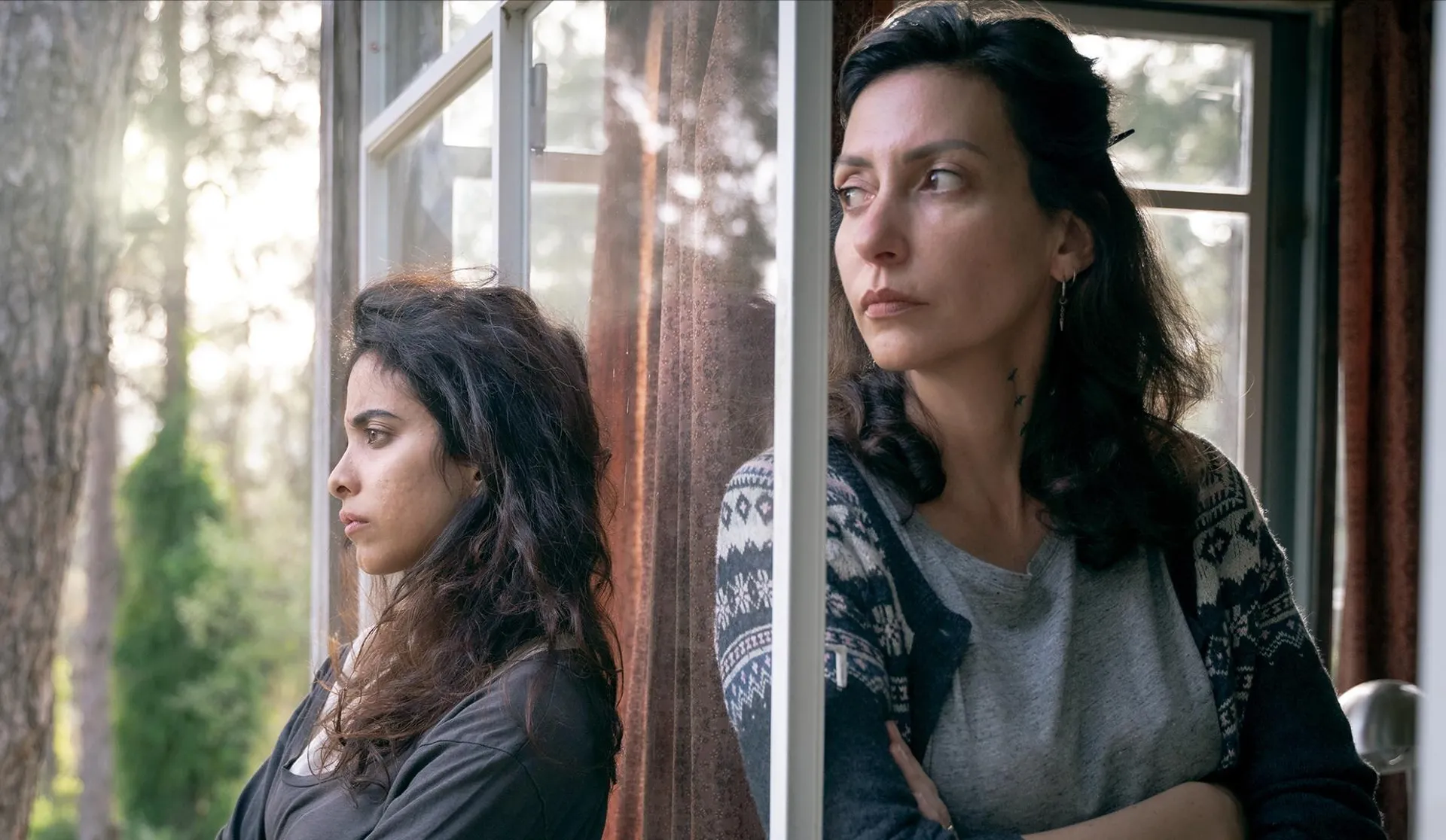Set in the not too distant future in Israel, which doesn’t feel all that different from right now, The Future is the story of two women, Dr. Nurit Bloch (Reymonde Amsellem), an Israeli scientist/profiler and Yafa, a young Palestinian university student (Samar Qupty) who is either a terrorist or a freedom fighter, depending on where you sit. Yafa has killed the Israeli Minister of Space and Tourism and confessed to doing it, and Nurit is trying to figure out why her algorithm called The Future Project, which is supposed to alert authorities about terrorist threats, failed to stop her. So she arranges for Yafa to be brought to her clinic for some one-on-one sessions. This takes both women down a tangled path of self-discover.
Nurit’s life outside the clinic is focused on having a child, and a surrogate who seems too good to be true drops into her life. Meanwhile throughout the film, her scientist husband is up in a tree, and the first ever Israeli manned-mission is hurtling toward the moon. Yafa’s life is less known. She is from a Palestinian family that has sent her sisters to study and live abroad and that could have been her future. But life elsewhere is no answer for her to life under occupation. When Nurit brings up her difficult relationship with her mother, Yada’s take is that parents are there to do for their children, not the other way around, though it turns out that is exactly why she killed the minister. And this exploration of mothers and their roles in their children’s lives causes Nurit to question her decision over becoming a mother.
This is not a film that is easy to describe. It’s filled with small details that contribute to an anxious atmosphere that pervades the place. Nurit watches from her hill as a house in the West Bank is demolished. Outside her tranquil little home studio, heavily armed IDF soldiers are waiting to haul Yafa back to her cell. And everyone is watching as the Israeli rocket closes in on the moon and runs into technical problems. There is a sense normalcy just on the surface, but below, nothing is right.
Both of the actresses are fabulous, particularly Reymonde Amsellem who is the center of the film. The director keeps everything very taut, and the dialogue sparse, switching back and forth from Hebrew to Arabic. It’s a thoughtful film about liberation and what that means to each of these women. And I highly recommend it.

